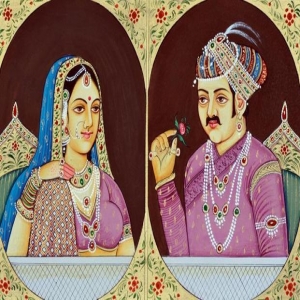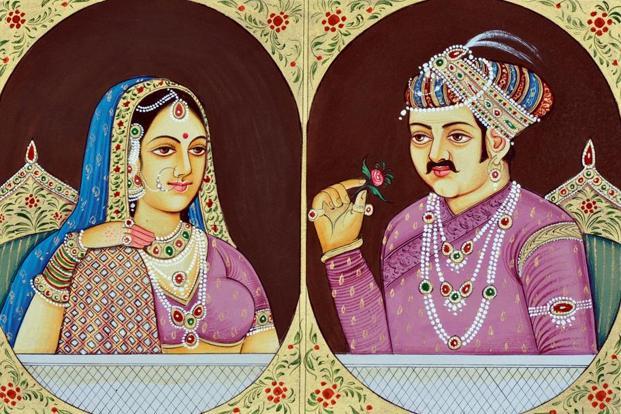
 A. J. Philip
A. J. Philip

There is a demand to rename Akbar Road in New Delhi. I used to take this road daily while commuting to and from the office. Given the alacrity with which the BJP-led Central and state governments replace Muslim names with Hindu ones, it would not be surprising if the change is implemented immediately.
I grew up studying history, which records Akbar only as Akbar the Great! How did he earn this honour?
Akbar was not very educated. In fact, he was illiterate and could neither read nor write. However, he respected his parents, especially his father, Humayun. He never claimed he was not born biologically. He accepted that he was the result of an accidental collision between a male and a female chromosome.
He did not shy away from the responsibilities of a married man. In fact, he and his first wife, Ruqaiya, were just 14 when they were united in holy matrimony. He did not abandon her after marriage, claiming it was forced upon him by his parents and relatives.
He could have argued that he was wedded to the nation and had no qualms about leaving her. On the contrary, he lived with her, fulfilling all his familial responsibilities. Altogether, he married over a dozen times, as was the custom then, but he never uttered triple talaq to any of them. Had they sought divorce, they would have received it, for he did not believe in restricting their freedom to remarry.
He took care of each of his wives, some of whom, like his favourite, Mariam-uz-Zamani, also known as Jodha Bai, had Hindu ancestry. She was a Hindu princess from Amer (Jaipur). Everybody received equal treatment. He even respected their parents, no matter what their religion was.
Though uneducated, he surrounded himself with the knowledgeable, not to lecture them on any subject under the sun in the name of Mann Ki Baat but to seek their opinions. Akbar never felt the need to declare, "Climate has not changed. We have changed. Our habits have changed. Our habits have got spoiled. Due to that, we have destroyed our entire environment."
Akbar never claimed that his ancestors knew and practised cosmetic surgery. As proof, he never cited Karna from the Mahabharata or the elephant-headed god Ganesha, nor did he draw examples from Persian or Arabic legends.
In fact, the third Mughal emperor never claimed he had a degree in political history from Nalanda University or any other institution. As a result, he never had to ask a university to keep his qualifications secret. Nobody was inquisitive because, for the people, a ruler's education mattered less than his ability to govern. He never made any false claims about his educational qualifications.
Akbar had great observational and analytical skills, which served him well throughout his reign. His courts in Delhi, Agra, and Fatehpur Sikri attracted the finest minds. He was a practising Muslim, but that did not stop him from engaging with scholars of Hinduism, Jainism, and Christianity. He respected Sunni, Shia and Sufi traditions.
He viewed all languages as tools for communication, promoting Sanskrit as much as Persian. He believed a Muslim need not undertake Haj if he was poor; it was only mandatory for those who could afford it. He did not encourage poor Muslims to go for Haj, though he facilitated those who wished to go. However, he never boasted about how many thousands travelled to Mecca and Medina from Mughal India.
He patronised poets, architects, artists, and artisans, making his kingdom a hub of arts, literature, and learning. He never subjected them to lectures on artificial intelligence, risking public ridicule. Instead, he learned from experts and applied their knowledge for the people's welfare.
He rationalised the taxation system, implementing a formula that prevented tax collectors from exploiting people. He used the revenue for national development, not for extravagant travels within his kingdom or abroad. He never thought of constructing a colossal statue using technology and materials from China, nor did he rename an existing stadium after himself.
That does not mean Akbar avoided foreign trade. In fact, he annexed Gujarat primarily to secure a port for international commerce. Mughal India was one of the world's largest buyers of firearms, importing from the Ottoman Empire and European nations like Italy and France to ensure national security.
True, after each victorious conquest, he built a modest structure to commemorate it, Fatehpur Sikri being an example. But extravagance was never his hallmark. He dressed like a king but never repulsed the public by changing his attire five times a day. He did not have the equivalent of Air Force One or its Indian counterpart.
Under Akbar, Mughal India tripled in size and wealth. As was customary, he faced many challenges, including an assassination attempt, but he never let adversity deter him from his Rajdharma. No one had to remind him of his duties; he was more aware of them than his privileges.
Equality was a core principle for Akbar. He established schools across his empire, ensuring education was accessible to all, without caste or religious discrimination. Though he never attended school himself, he encouraged children to study and had people trained to read to him. He never boasted about his 56-inch chest.
He was aware that the country needed development, not just grand declarations. So, he built roads, forts, and a strong administrative structure. He ensured justice was dispensed fairly, without discrimination based on religion or status. His Din-i Ilahi was an experiment in religious harmony, showing his willingness to go beyond orthodoxy for the greater good.
Unlike rulers who spent lavishly on self-promotion, Akbar invested in the well-being of his people. He ensured his subjects had access to fair governance and economic opportunities. Unlike those who renamed cities and roads for political gains, he focused on expanding infrastructure without erasing history.
Whether in administration, the judiciary, or the army, ability was the deciding criterion. If one was capable and loyal, he could rise to any position in the empire. Akbar learned from the plague, or Black Death as it was called, that killed thousands in Europe, that the best way to fight it was to rear cats. Christians in the 14th century believed cats were evil, so they killed them wherever they saw them. But they noticed that in Spain and the Mediterranean, where Muslims lived, there was no plague.
Why? Because the cat was the only animal allowed to enter the Prophet's prayer room. Not even his wife was permitted. Quickly, Europeans learned and started rearing cats. When such diseases hit the empire, Akbar did not follow the advice of superstitious people who suggested that to fight a virus, people should clang all metallic vessels and plates for a specified period.
Of course, he was not against religious practices and customs. He took part in Holi and Diwali celebrations. He allowed people to tie rakhis on his wrist. He attended the Kumbh Mela. In fact, Akbar was among the first to take a dip in the river, which is why the first bath was called Shahi Snan. This year, it was renamed Amrit Snan to make it a purely Hindu affair.
During his reign, anyone who wanted to do business on the riverbanks was allowed to do so. It was not restricted to Muslims. Even in Muslim melas, Hindus were allowed to trade. He did not mix religion with spirituality.
Akbar considered Ganga water the elixir of life. Wherever he traveled, his entourage carried large jars of Ganga water. One reason he shifted his capital from Lahore to Agra was to ensure a steady supply of Ganga water for his daily use.
Some years ago, the government designated certain Central public sector companies like MMTC and Indian Oil as Navaratnas because they generated maximum profits. The original Navaratnas were the nine distinguished advisors and experts in Akbar's court. The term Navaratna means Nine Gems.
The Navaratnas were Abul Fazl, a historian and scholar who wrote Akbarnama, a detailed history of Akbar's reign; Faizi, a poet and philosopher who translated the Bhagavad Gita into Persian; Birbal, a witty and intelligent advisor known for his clever stories; Tansen, a classical musician famous for his rendition of Raga Deepak; Raja Man Singh, a military officer; Raja Todar Mal, a finance expert; Abdul Rahim Khan-I-Khana, a poet whose verses remain popular in Hindi literature; Fakir Aziao-Din, an advisor; and Mullah Do-Piyaza, another advisor.
Out of the nine, four were Hindus. They were renowned worldwide for their outstanding abilities. It is said that soon after he was sworn in as US President, John F Kennedy invited all Nobel Prize winners for a luncheon meeting at the White House. While raising a toast, Kennedy remarked that never before in American history had so many geniuses assembled in one room, except when Thomas Jefferson dined alone.
The Navaratnas were the intellectual cream of Indian society. Akbar never lectured them on science and its applications. On the contrary, he always sought their counsel. He would be turning in his grave if he knew that today, there is not a single Muslim in the Union Cabinet, and Muslims were not allowed to sell even bottled water and biscuits at the Mahakumbh at Prayagraj.
The empire often faced challenges from both within and outside the country. There were always rebels waiting for an opportunity. Yet Akbar did not flee the country, as some leaders did during the Emergency.
Akbar was a true secularist. He exposed himself to Jainism, Buddhism and Zoroastrianism and studied their key teachings. He engaged in long discussions with Jesuits. He was open-minded and willing to risk his life to promote a new religious philosophy. Opinions may differ on the religion he promoted, and it may not have succeeded after his death, but there is no doubt that he was a ruler who sought only the welfare of his people.
He encouraged people from Central Asia and other regions to settle in India and adopt it as their Punyabhumi (sacred land). That is how Islam grew and remained rooted in India. Small wonder that Akbar is absent from Pakistani school textbooks because they dislike him for his syncretic beliefs. Instead, they glorify Aurangzeb.
It would be a tragedy of the highest order if Akbar Road was renamed. Many of the monuments he built still stand tall, while statues like Shivaji's collapse within a year of their erection. Perhaps, before renaming Akbar Road, those in power should pause and reflect. Is Akbar's legacy truly one to be erased, or is it one that still holds lessons for governance? Instead of rewriting history to suit present agendas, we should learn from Akbar's vision, one that embraced diversity, justice, and progress for all.